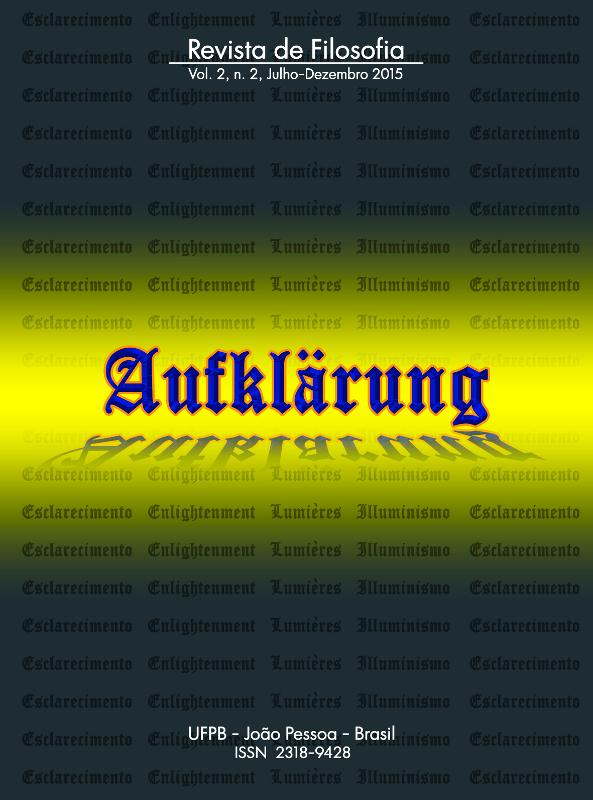Logical Quantification and Plato's Theory of Forms
DOI:
https://doi.org/10.18012/arf.2016.24905Palavras-chave:
being, false statements, negation, Plato, possibility of knowledge, quantification, Sophist, theory of FormsResumo
Contemporary philosophers find Plato's discussion in the Sophist about the problem of negation and falsity as interesting and difficult. It is interesting in the sense that in this dialogue, and others that are considered by Plato scholars to belong to the late period dialogues, we seem to find a Plato who makes less use of the theory of Forms (a distinguishing feature of the middle period dialogues). It is difficult in the sense that It invites us to use the notational convention of modern symbolic logic to provide a coherent picture of Plato's view. Charlton prefers a Platonizing Interpretation on the issue and quantifies over Forms (and not over concrete objects). Given this context, the paper inquires whether logical quantification is the correct (or at the very least, the best) route to pursue in order to better understand the Forms. It will also discuss the crucial role of Plato's theory of Forms in the middle and late period dialogues in relation to knowledge and its very possibility.Downloads
Referências
BROWN, J. R. Philosophy of Mathematics: A Contemporary Introduction to the World of Proofs and Pictures. 3rd ed. New York: Routledge, 2008.
CHARLTON, W. Plato’s Later Platonism. In: TAYLOR, C. C. W. ed. Oxford Studies in Ancient Philosophy Vol. XIII. Oxford: Oxford University Press, pp. 111-133, 1995.
PLATO. Plato, Complete Works. J. M. Cooper & D. S. Hutchinson eds. Indianapolis/Cambridge: Hackett Publishing Company, Inc., 1997.
QUINE, W. V. O. From a Logical Point of View: Nine Logico-philosophical Essays. Cambridge, Massachusetts: Harvard University Press, 1961.
QUINE, W. V. O. Word and Object. Cambridge, Massachusetts: Massachusetts Institute of Technology Press, 1960.
RYLE, G. Plato’s Progress. London: Cambridge University Press, 1966.
STOUGH, C. L. “Forms and Explanation in the Phaedo.” Phronesis, 21 (1): pp. 1-30, 1976.
Arquivos adicionais
Publicado
Como Citar
Edição
Seção
Licença
Política de Direito Autoral para os itens publicados pela Revista:
1.Esta revista é regida por uma Licença da Creative Commons aplicada a revistas eletrônicas. Esta licença pode ser lida no link a seguir: Creative Commons Attribution 4.0 International (CC BY 4.0).
2.Consonante a essa politica, a revista declara que os autores são os detentores do copyright de seus artigos sem restrição, e podem depositar o pós-print de seus artigos em qualquer repositório ou site.
Política de Direito de Uso dos Metadados para informações contidas nos itens do repositório
1. Qualquer pessoa e/ou empresa pode acessar os metadados dos itens publicados gratuitamente e a qulquer tempo.
2.Os metadados podem ser usados sem licença prévia em qualquer meio, mesmo comercialmente, desde que seja oferecido um link para o OAI Identifier ou para o artigo que ele desceve, sob os termos da licença CC BY aplicada à revista.
Os autores que têm seus trabalhos publicados concordam que com todas as declarações e normas da Revista e assumem inteira responsabilidade pelas informações prestadas e ideias veiculadas em seus artigos, em conformidade com a Política de Boas Práticas da Revista.






































